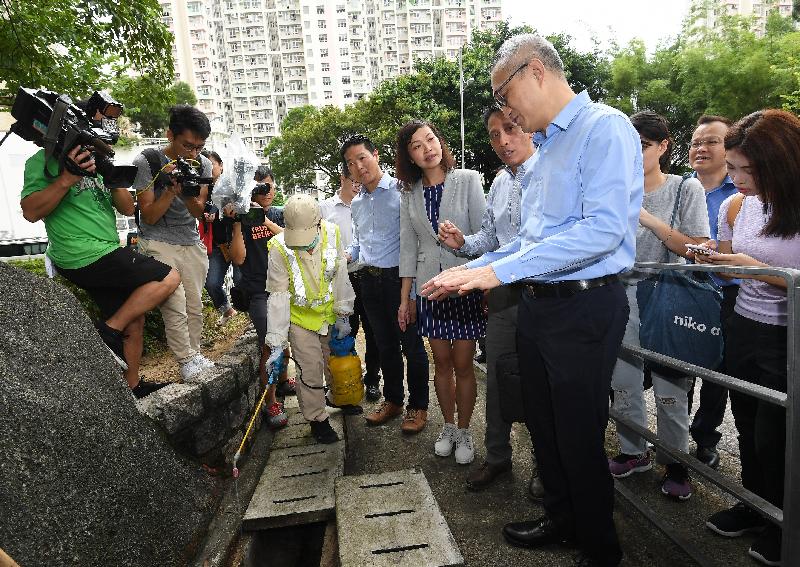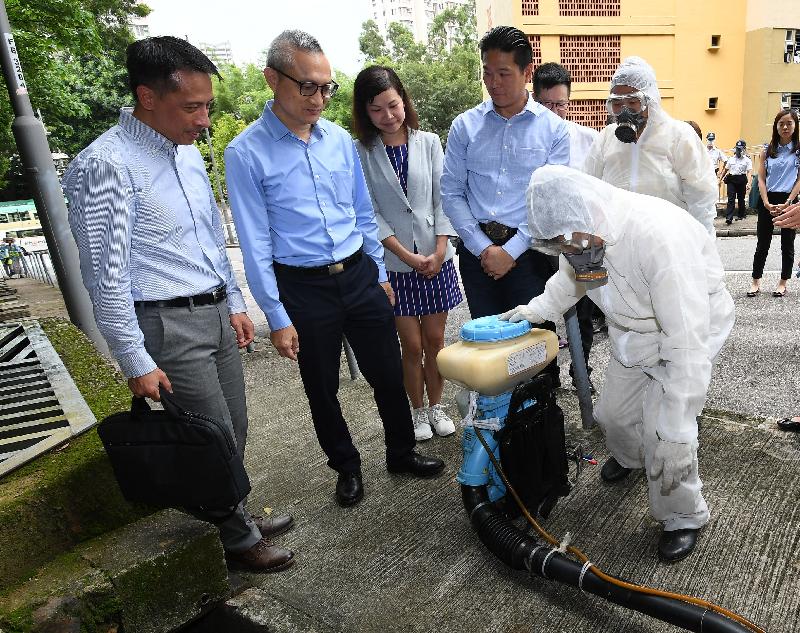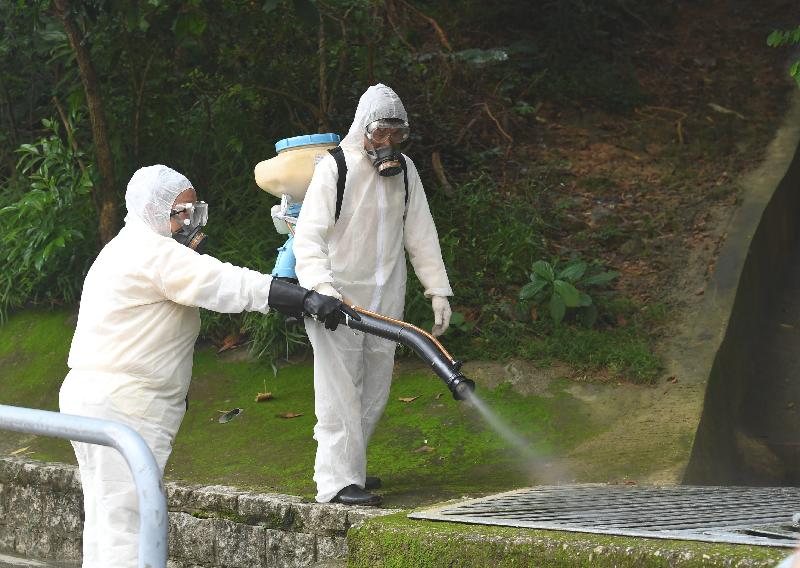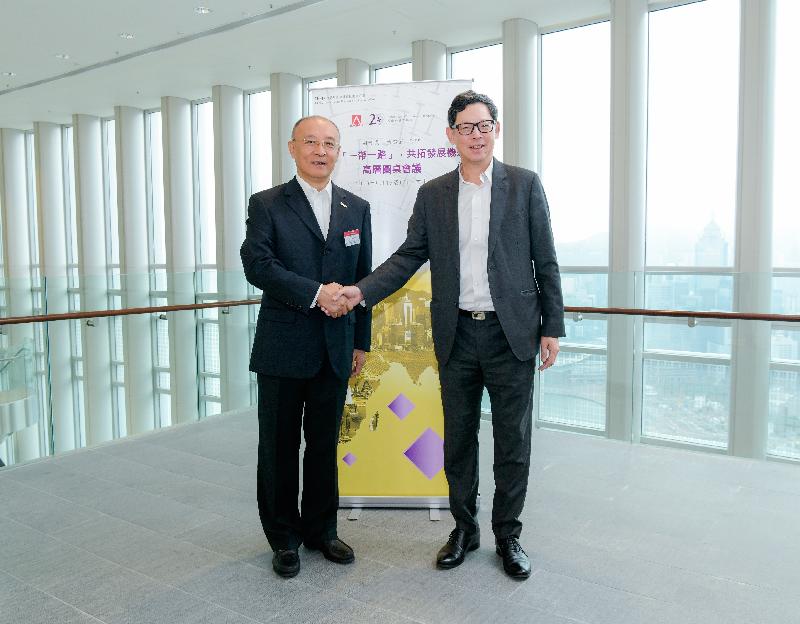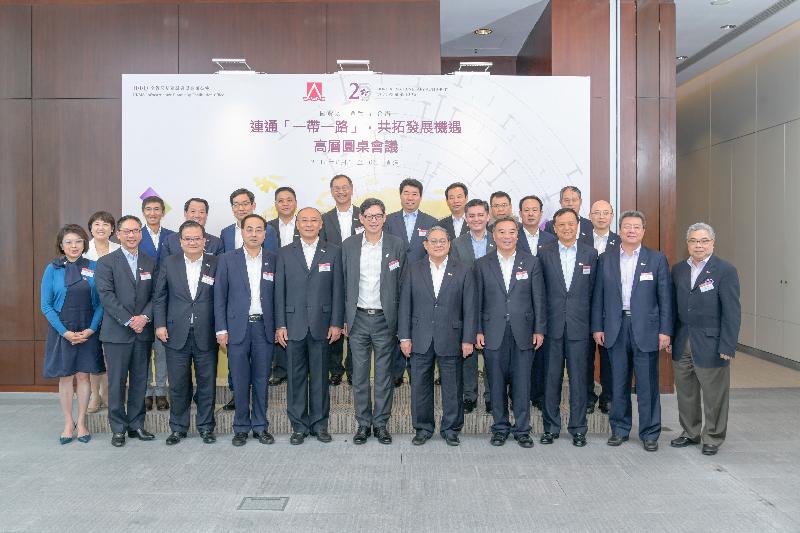The Under Secretary for Food and Health, Dr Chui Tak-yi, together with the Chairman of the Kwai Tsing District Council (KTDC), Mr Law King-shing, and members of the KTDC visited Kwai Tsing District today (August 16) to inspect the implementation of mosquito prevention measures carried out by the Food and Environmental Hygiene Department (FEHD).
Dr Chui said that in order to tackle the risks of dengue fever and other mosquito-borne diseases, various government departments had to step up mosquito control measures and members of the public should also adopt mosquito prevention and control measures at home.
“District Councils, especially their environmental hygiene committees, spare no efforts and play important roles in supporting and promoting mosquito control work at the district level. We hope that all District Councils will proactively encourage people in the community and organisations to assist in eliminating mosquitoes through their networks of local communities as well as their contact with residents and shop tenants,” he said.
In view of the four local cases of dengue fever, the FEHD immediately stepped up targeted mosquito prevention and control work at the relevant districts. The FEHD deployed staff to carry out prevention and control work including conducting fogging operations to reduce the number of adult mosquitoes, applying larvicides, clearing stagnant water and disused articles, and conducting grass cutting to eliminate potential mosquito breeding grounds in areas within a 500-metre radius of the residences of the patients and the places visited by them during the incubation period. The FEHD also collected samples of Aedes albopictus for virus testing with a view to identifying the infection sources of the dengue fever cases.
In the rainy season, the public should take heed of the following advice on mosquito control:
• Thoroughly check all gully traps, roof gutters, surface channels and drains to prevent blockage;
• Scrub and clean drains and surface channels with an alkaline detergent compound at least once a week to remove any deposited mosquito eggs;
• Properly dispose of refuse, such as soft drink cans, empty bottles and boxes, in covered litter containers;
• Completely change the water of flowers and plants at least once a week. The use of saucers should be avoided if possible;
• Level irregular ground surfaces before the rainy season;
• Avoid staying in shrubby areas; and
• Take personal protective measures such as wearing light-coloured long-sleeved clothes and trousers and apply insect repellent containing DEET to clothing or uncovered areas of the body when doing outdoor activities.
To reduce the risk of infections spread by mosquitoes, apart from general measures, travellers returning from affected areas should apply insect repellent for 14 days (dengue fever) or at least 21 days (Zika Virus Infection) upon arrival in Hong Kong. If feeling unwell, seek medical advice promptly and provide travel details to the doctor. DEET-containing insect repellents are effective and the public should take heed of the tips below:
• Read the label instructions carefully first;
• Apply right before entering an area with risk of mosquito bites;
• Apply on exposed skin and clothing;
• Use DEET of up to 30 per cent for pregnant women and up to 10 per cent for children*;
• Apply sunscreen first, then insect repellent; and
• Re-apply only when needed and follow the instructions.
* For children who travel to countries or areas where mosquito-borne diseases are endemic or epidemic and where exposure is likely, those aged 2 months or above can use DEET-containing insect repellents with a DEET concentration of up to 30 per cent.
Members of the public should call 1823 in cases of mosquito problems and may visit the dengue fever pages of the Centre for Health Protection (CHP) and its Travel Health Service, the latest Travel Health News, tips for using insect repellents, the CHP Facebook Page and YouTube Channel, and the FEHD’s Guidebook on Control and Prevention of Mosquito Breeding for more information.
read more


